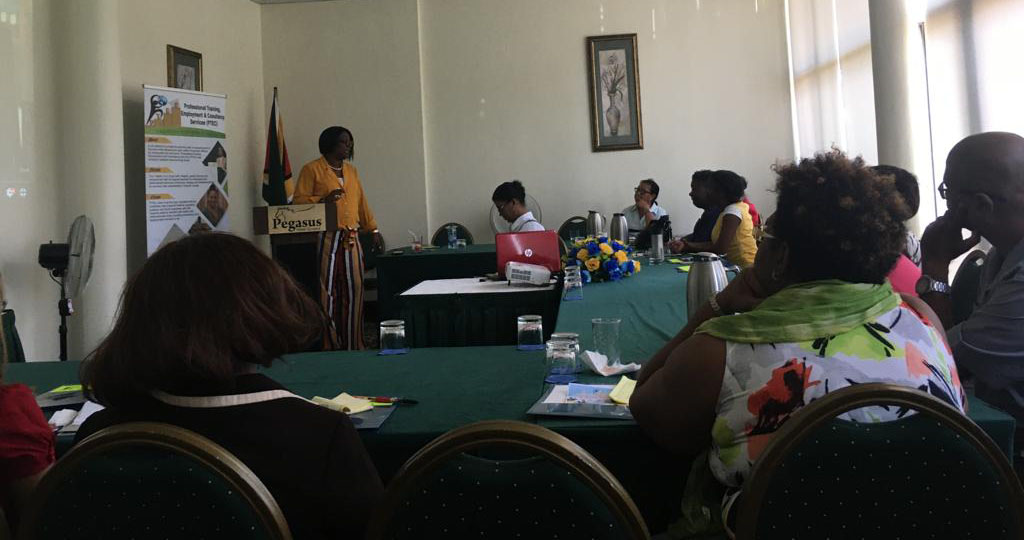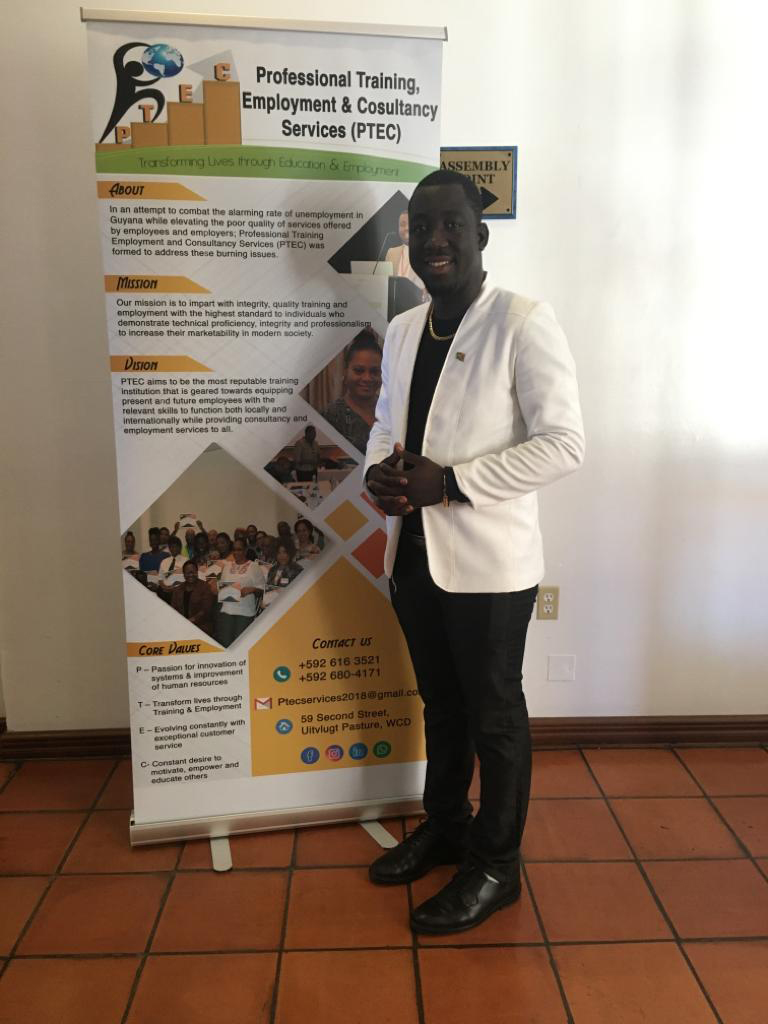Seeing the need for members of the Guyanese workforce to provide the best services that they can, a local company, Professional Training, Employment and Consultancy Services, has been working to help workers develop their skills and themselves in the process.
Marlon Joseph, who is the founder of the company, did an assessment of the services in Guyana and found that much needed to be done to ensure the workforce reaches a desirable place, particularly given that the country is poised to become an international player as a major oil and gas producer. This led to the formation of the company to train persons in the “proper” ways to not only promote a business but themselves.
As a result, the company has developed different courses, which are administered through workshops, to meet the needs of individuals who seek to develop themselves and their businesses. Its courses include conflict resolution, emotional intelligence and creative problem solving skills, and stress management.

At a recent workshop participants were trained in business etiquette and protocol. The hostess, Sharon Houston, emphasised that being an advocate for a business or company meant being composed and giving off a presence that will encourage others to want to conduct business with them at all times. She emphasised posture, attire and greetings to the participants.
Joseph noted that the importance of mental health in the workplace is among the issued being focused on at the workshops. He noted that there is a growing awareness of mental health struggles and employees and even employers who may be experiencing such issues need a safe place to cope. He further said that while it can be a challenge, they are hoping that workplaces will understand how crucial it is for persons to be able to talk to others about how they feel. From family problems at home to issues at the workplace, it is vital that people keep track of their employees’ health, he added.
Along with mental health awareness in workplaces, Joseph said attention was also being paid to first aid training for the work force. He noted that if a medical emergency arises at work, persons need to be able to provide some sort of aid until there is professional intervention.
He added that all of PTECS’s training programmes aim to provide persons with a solution to every possible difficulty that might occur in work places and most of them are in some way interlinked.
A workshop participant, Sheik (only name given), who is the head security guard at a local firm, said most of the workshops he has attended have impacted not only him but his colleagues, with whom he has shared what he learnt.
“Today’s workshop, for instance, we had a lot of role playing in it. It was etiquette actually and how you deal with persons when you’re coming in—like how I just met you, your posture, how I shake your hand. These little things, like when you go for a job. Your speech, the way you promote yourself,” he noted.
When asked what he would be taking back from the workshop, without hesitation he exclaimed, “First thing, the knowledge… the broad-base knowledge, and it is so cheap”. He went on to describe the workshop as dynamic, while saying that the information shared had every day application.
Another participant, who was also at a previous workshop that was focused on time management, said that it helped her to remind her of what she had already known, such as being on time and having goals set along with a time period to complete them and also examining how attainable they are. She said that as it relates to the etiquette workshop, what she has realised is that it is not just about being able to eat a certain way but how a person carries him or herself as well, both in and out of a business setting.










